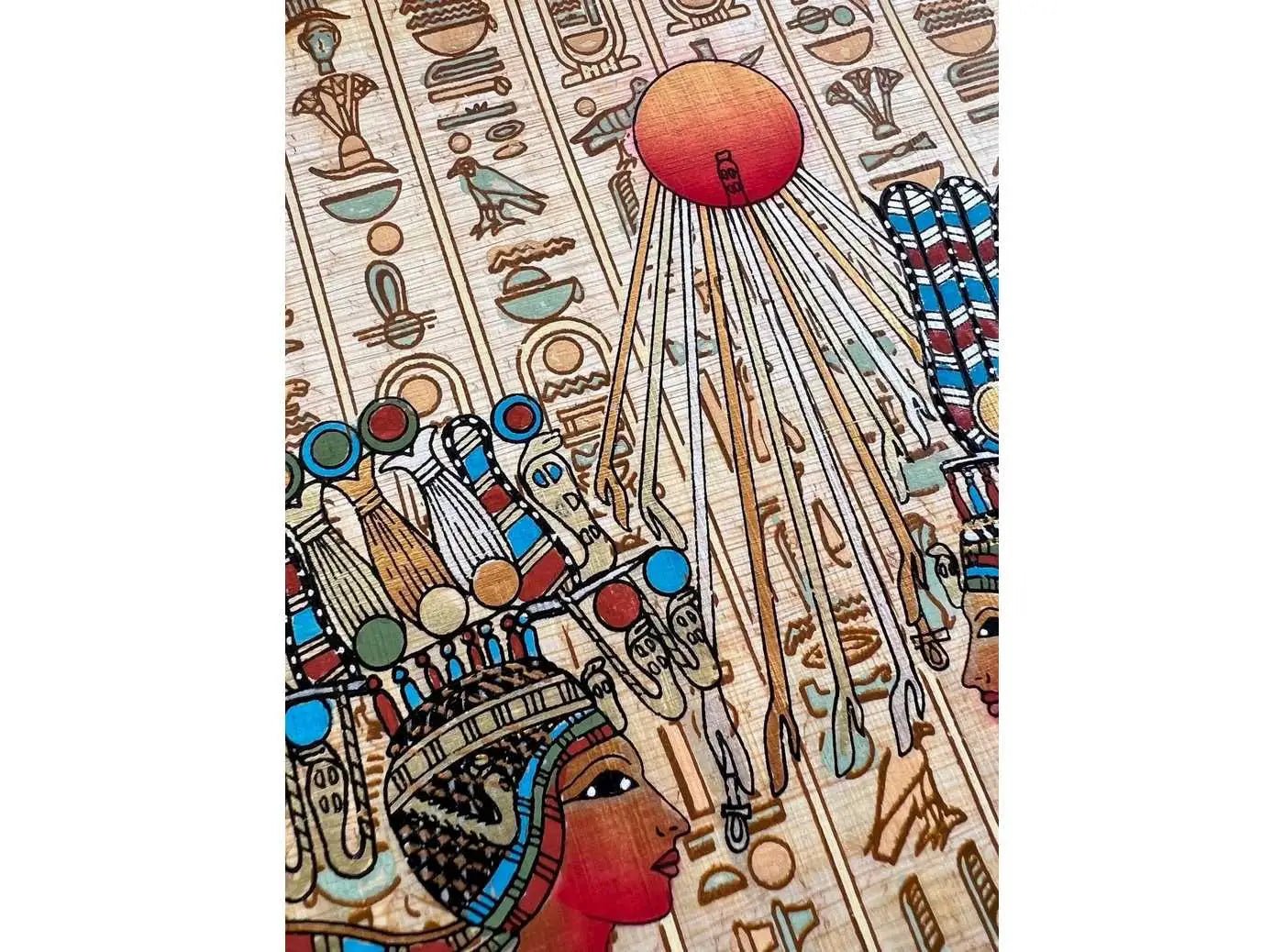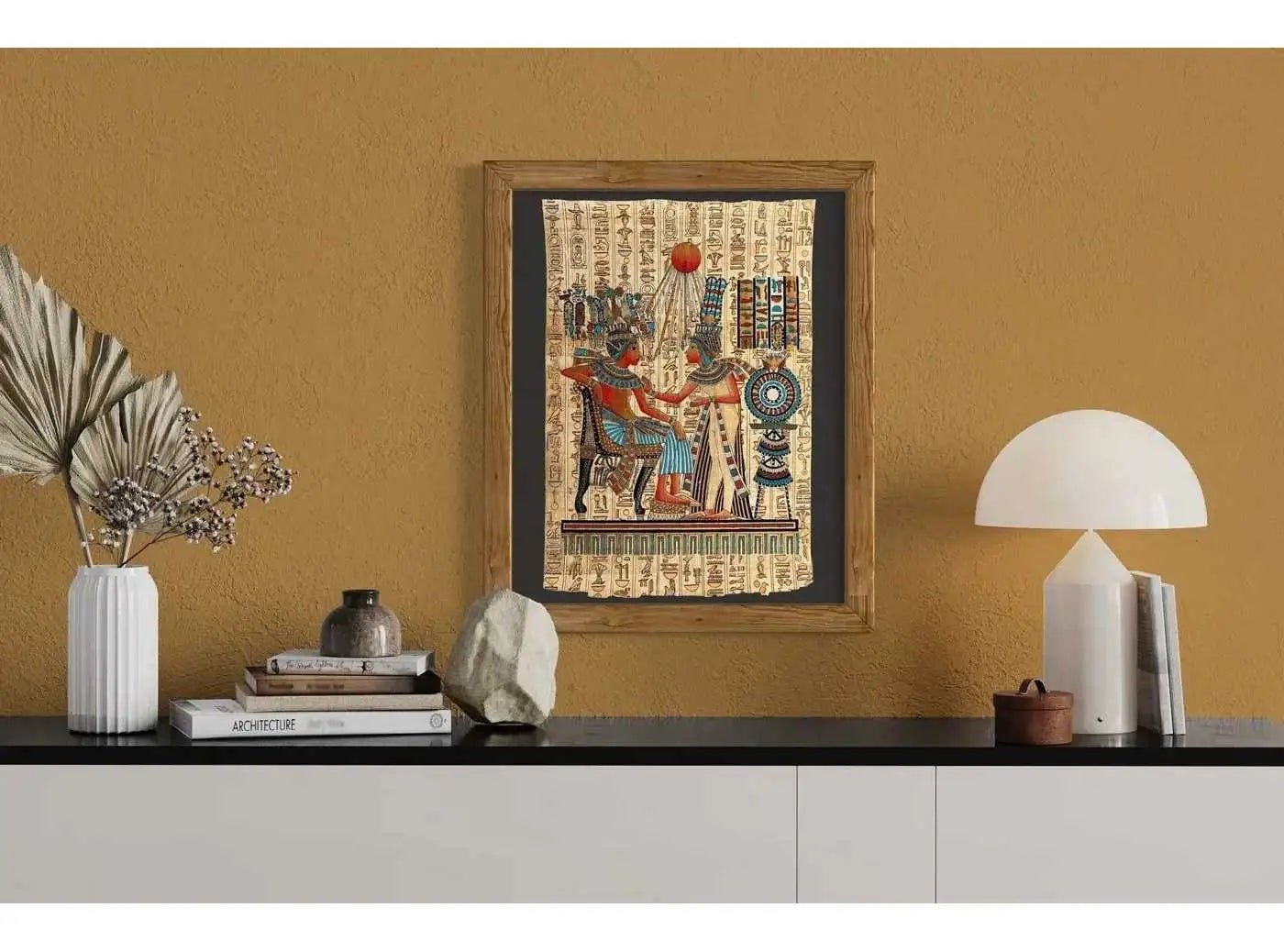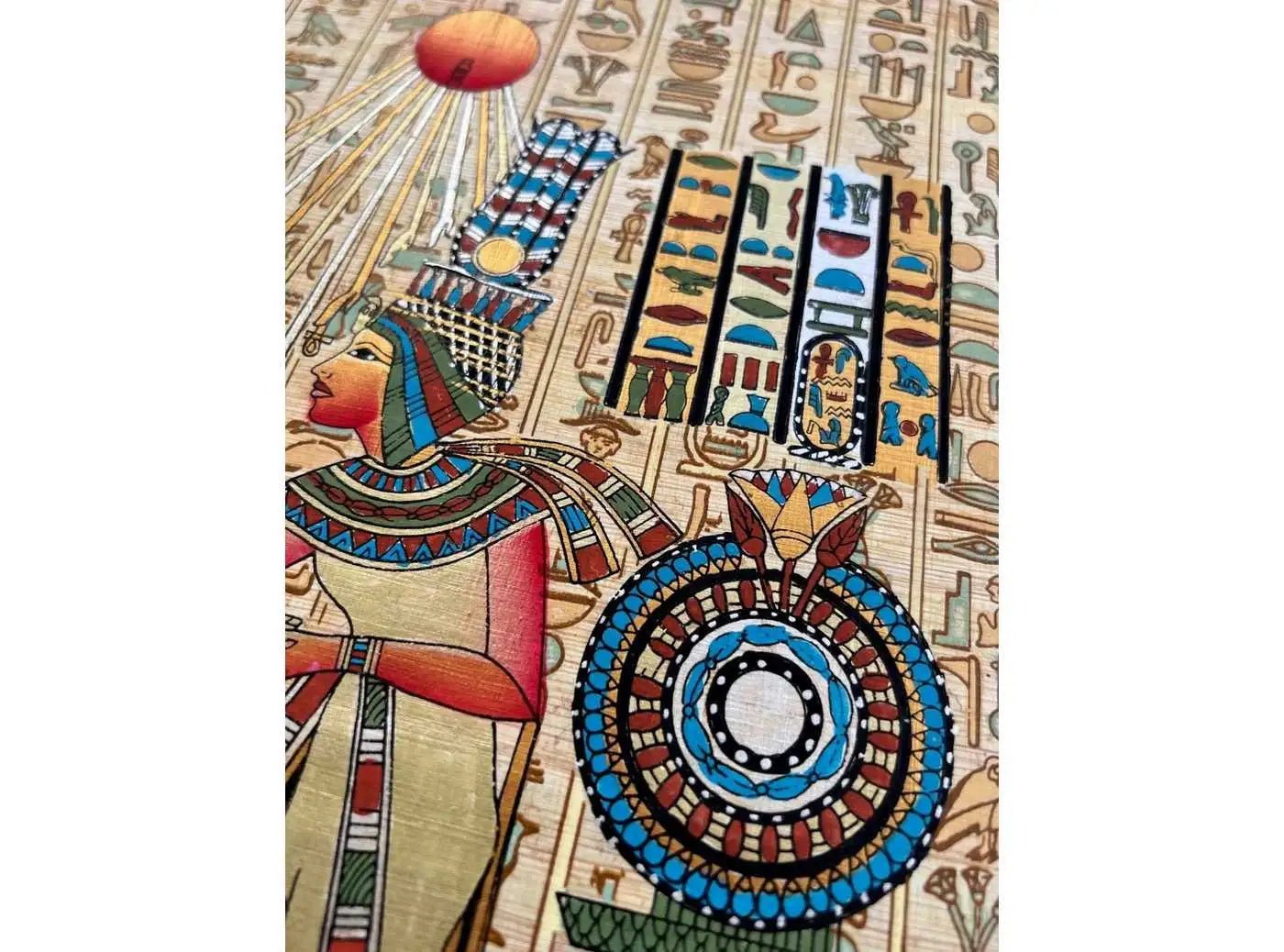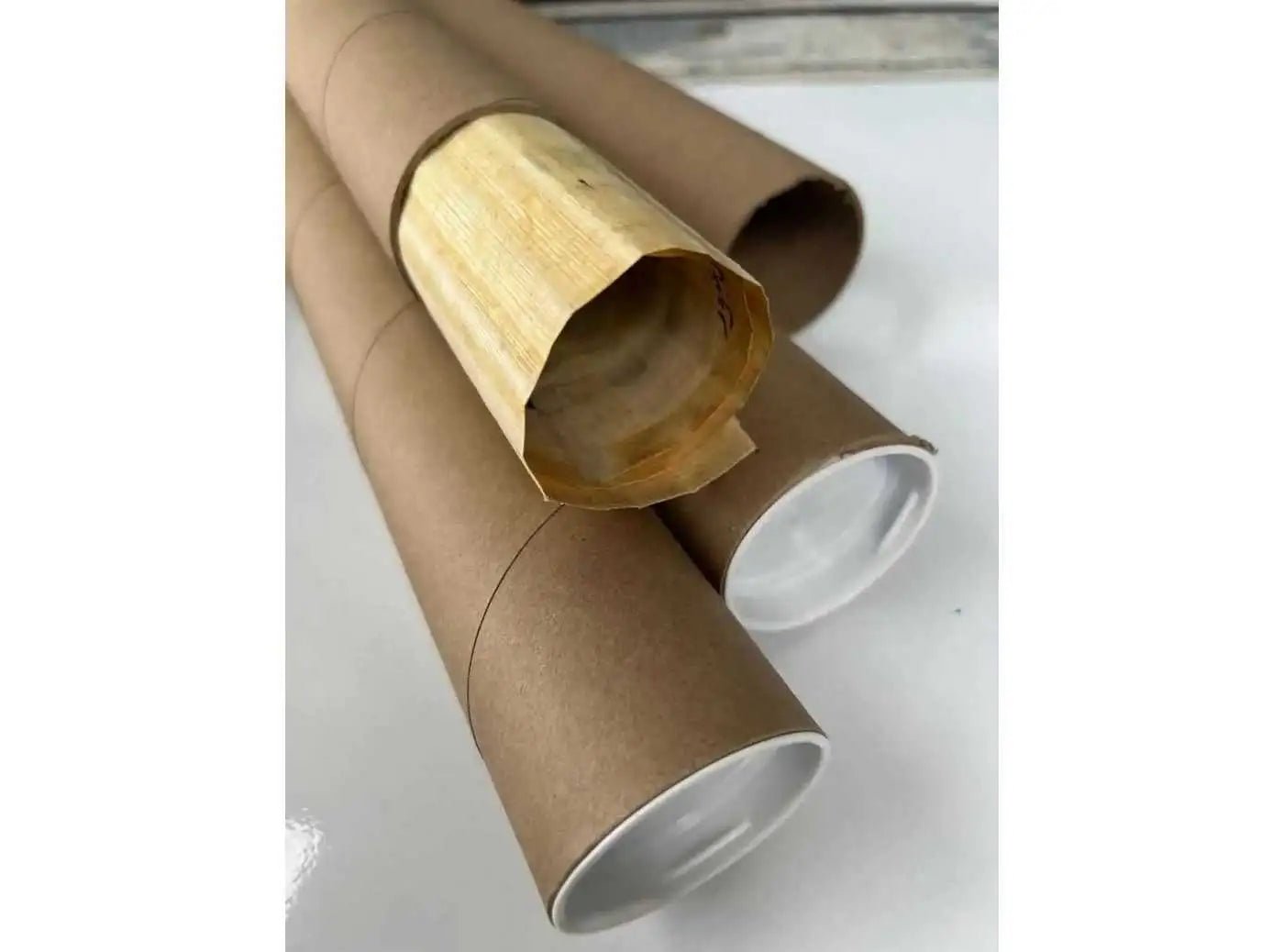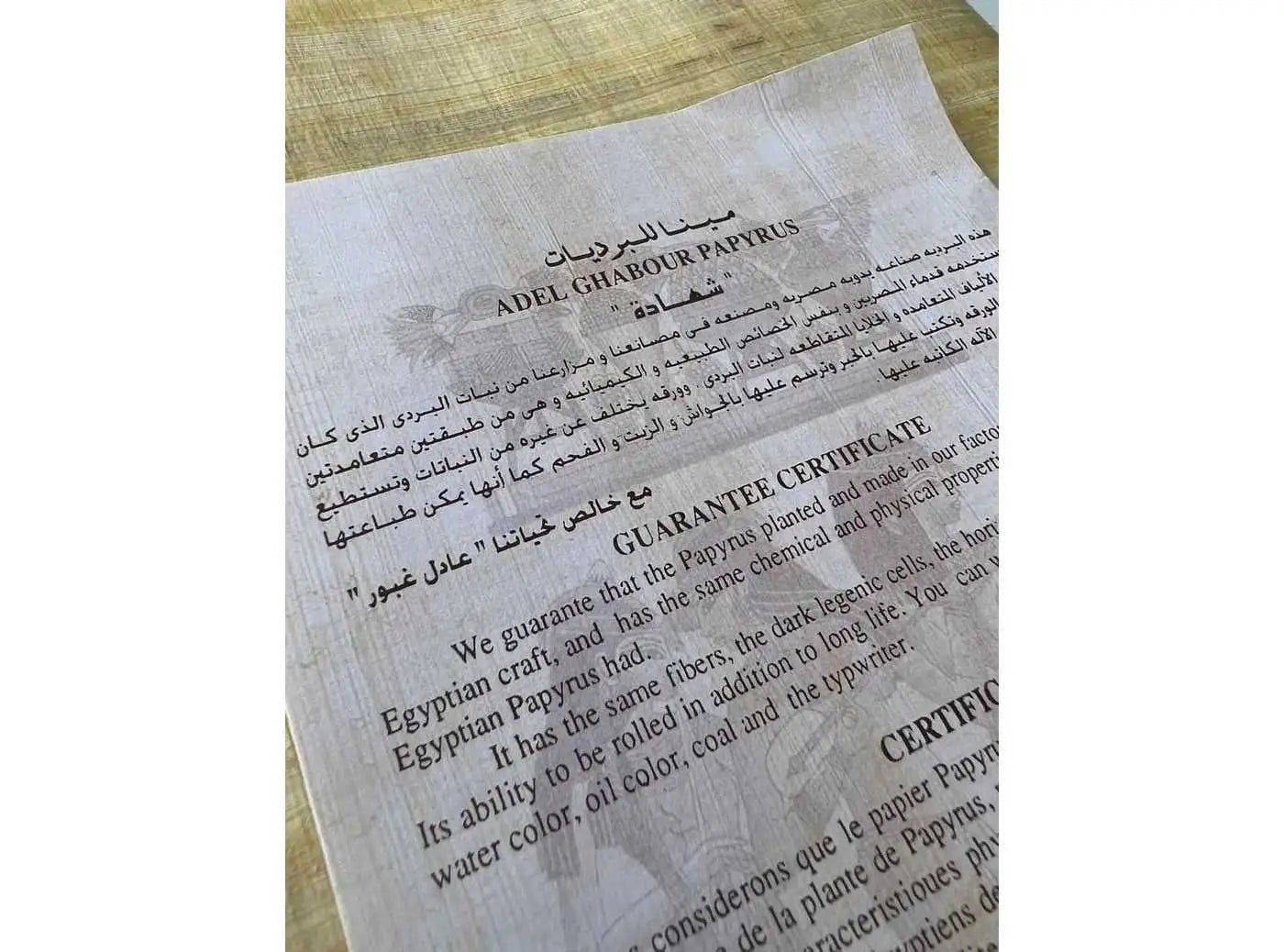King of Egypt Tutankhamun and His Wife Queen of Egypt Ankhesenamun Painting on Tutankhamun’s Royal Seat Golden Throne - 13x17 Inches
King of Egypt Tutankhamun and His Wife Queen of Egypt Ankhesenamun Painting on Tutankhamun’s Royal Seat Golden Throne - 13x17 Inches
Couldn't load pickup availability
In stock
Country of Origin: EGYPT
Throne of King Tutankhamen, showing the Pharaoh being anointed by his wife, Ankhesenamun. A picture showing King Tutankhamen (left) with his wife and sister, Ankhesenamun.
The back of the throne shows the king basking under the rays of the Aten. Queen Ankhesenamun is lightly touching the king's shoulder. The king and the queen are wearing a pair of sandals which they share.
Several objects in Tut's tomb, such as a carving on a dazzling golden throne, show a warm relationship between Tut and his bride, Ankhesenamun.
Ankhesenamun, whose name means "her life is Amun," was the daughter of Nefertiti and Akhenaten, making her the half-sister, cousin, and possibly blood sister of King Tutankhamun. She also became his wife when he ascended the throne. He was at most ten years old, and she was probably only 13. By marrying his sister, he was able to keep the pure bloodline of the gods within the royal family. Because of the inbreeding in the family, the child bride Ankhesenamun probably had some pretty severe deformities, just like her husband. Together they ruled Egypt while dealing with their own health problems.
Ankhesenamun's life was probably marked by sorrow and tragedy. There is evidence that Akhnaton may have tried to father children through his daughters, including Ankhesenamun. After the death of her husband at a very young age, she was left a bereaved widow with no heir to rule the kingdom. She may have married her maternal grandfather, a man named Ay, who ruled Egypt after the death of King Tut.
A necklace rests on a high table behind the queen. The Aten (sun disk) spreads its beneficent rays, ending in tiny hands, over the young couple [indicating that the throne dates from the early years of Tutankhamun's reign (c. 1336-1327 B.C.)]."
• Certificate of Authenticity
Our Papyrus Paintings come with a Certificate of Authenticity that Guarantees that they were Painted in Egypt on the finest Handmade Egyptian Papyrus Paper.
• Material:
High Quality %100 Certified Original Authentic Papyrus Paper
• Dimensions: Approximately
W x H = 13 x 17 Inches
W x H = 33 x 43 cm
• Weight: Approximately
0.76 Ounce = 22 gram
• Brand: Adel Ghabaour
• Handmade / Hand Painted in: Giza, Egypt
• Each papyrus print comes in original packaging and all have a Certificate of Authenticity from Adel Ghabaour. Some are signed as well.
• Great to frame as wall art. Our papyrus paintings are NOT FRAMED.
• All Papyrus is hand-made & hand-painted, so yours may differ slightly from that in the photo.
----------------------------------------------
• All images are copyrighted by AncientEgyptianPaintings. All rights reserved •
#tutsroyalseat #throneoftut #kingtutankhamen #ankhesenamun #kingtut #queenofegypt #kingofegypt #raysoftheaten #artofancientegypt #papyrusart #tomboftutankhamun #atensundisk #goldenthrone
We clean up after ourselves.
Ecommerce deliveries have a carbon footprint. That's why we support verified projects that remove carbon from the air.



Every delivery’s carbon footprint is calculated based on weight, shipping method, and distance traveled. We neutralize these emissions by purchasing verified carbon removal credits from groundbreaking projects.



With your purchase, you’ll join a community of proactive merchants and customers dedicated to a sustainable future. Together, we've removed emissions for over 52 million deliveries and removed over 38 thousand tonnes of carbon.

We work with a network of pioneering carbon removal companies that have been vetted by the commerce platform Shopify.


